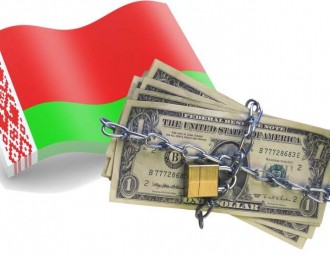Leu Marholin: IMF loan will only slow down Belarus’ slipping into the precipice

Even if Belarus gets a loan stagnation of economy and GDP decline will continue in Belarus.
The official Minsk radiates false optimism: as early as in January-February Belarusan authorities are planning to launch a new loan program with the International Monetary Fund. At least, the First Deputy of the Prime Minister of Belarus Vasil Matsiusheuski reported about it to Lukashenka the other day.
The economist Leu Marholin assumes that Minsk has chances to get a loan from the IMF. At least, general increase in prices and tariffs can be presented as preparation for the reforms. However, the IMF loan won’t resolve any problem.
Leu Marholin reasons a new nearly-loan wave in the interview with the “EuroBelarus” Information Service.
- The official Minsk hopes that as early as in January-February a new loan program with the IMF will be launched. What are these hopes based on?
- I think that such hopes are based on the abolition of the socially important goods’ list. For the program to be launched, the Belarusan authorities should account for the IMF. The official Minsk acts in accordance with the principle “money first”: the authorities want to report on increasing the tariffs on housing utilities and decreasing cross subsidization (which is one of the IMF’s complaints). The parties seemed to agree that Minsk should fulfill a certain minimum that doesn’t require particular expenses to start a new loan program with the IMF.
- According to the statements made by the Belarusan side, the tariffs on housing utilities used to be a stumbling block between Minsk and the IMF. Starting from January 2016 a 20% VAT on tariffs for gas and electricity was introduced. Can we consider the problem to be exhausted?
- The problem is in no way exhausted. In situation where there is no competition and no transparency of expenses Belarusans will face such problem when people don’t fully compensate for the expenses of the housing and communal services. Introduction of VAT is a momentary decision, which, at a government’s estimate, allows for compensating the expenses from 30% to 50%, and, again, report about it to the IMF.
- The former head of the National Bank assumes that general increase in prices and tariffs is a harbinger of reforms that the IMF insists on. Can the increase in prices really be accounted for the preparation to reforms?
- I have double feelings about it.
On the one hand, it is not only IMF but also life that makes the Belarusan authorities move. I have been repeatedly saying that reforms will start only when there are no other opportunities left. Step by step the range of possibilities narrows and the government has to react to that somehow. This is the stick in the stick and the carrot policy.
On the other hand, there is the carrot, i.e. the desire to get the IMF loan. However, the Belarusan authorities only shift the state problems to the shoulders of the Belarusan people. Nobody’s talking about the system structural reforms.
- How big are the chances to get the IMF loan?
- I think there that we have chances. The question is, however, whether it happens in January-February or a little bit later. Belarusan authorities usually radiate too much optimism; the IMF might request definite actions.
However, the IMF loan won’t resolve any problems. Nobody will give the official Minsk 3 billion dollars at once; perhaps, the process will be delayed for somewhat three years in tranches of 500 million, a billion a year after making certain homework.
- And Belarusans will have to tighten their belts both if we get the loan and if we don’t, won’t we?
- The loan will only slow down Belarus’ slipping into the precipice. However, stagnation of economy and GDP decline will still continue even if get the loan, unless the authorities dare to introduce complex reforms.
-
03.01
-
07.10
-
22.09
-
17.08
-
12.08
-
30.09










































